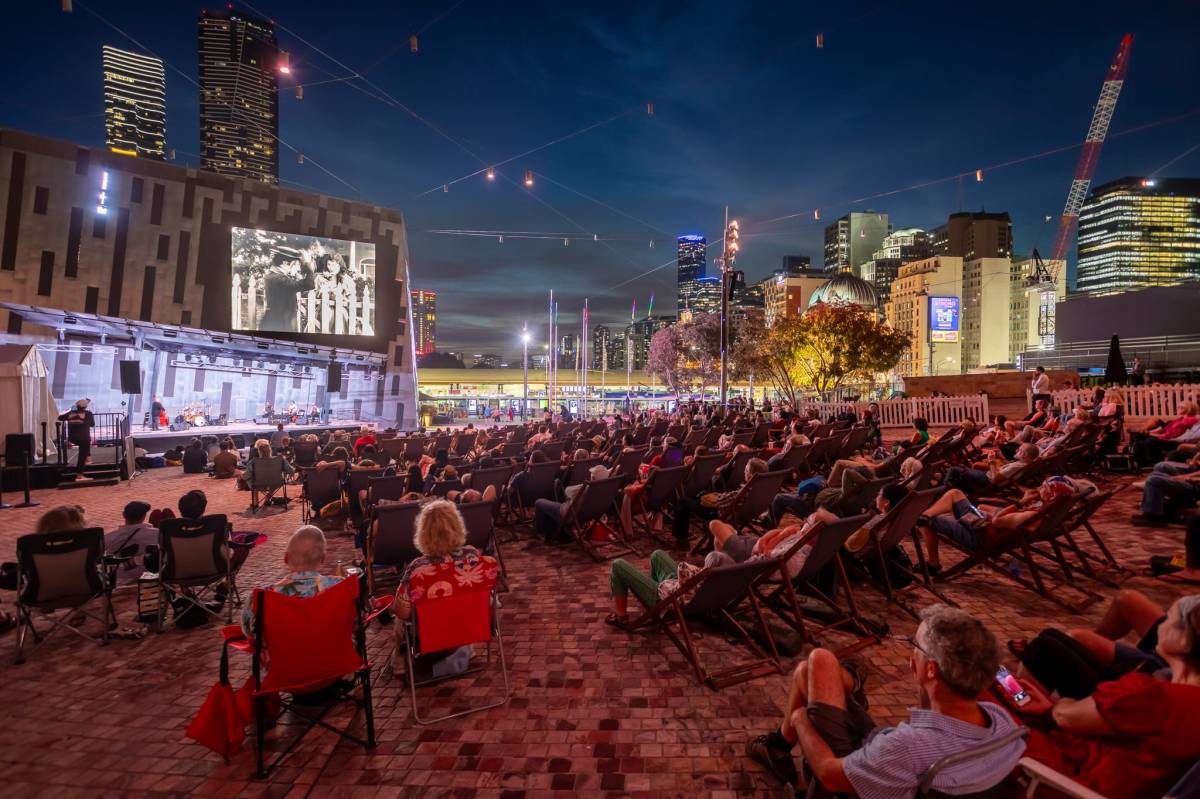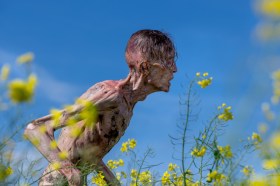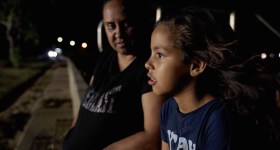There’s something very magical – and very Melbourne – about sitting under the stars on a warm summer night, watching rare silent films on the big screen, accompanied by original scores performed by their composers.
For the third year running, Melbourne’s Fed Square is presenting Silent Cinema with Live Scores, a free family-friendly program of films and live music held in the outdoor Main Square across three consecutive nights from February 25 to 27.
The invitation is simple: turn up before sunset, grab a deckchair – or roll out a picnic blanket – and enjoy a casual and celebratory mix of old cinema and new live music that’s performed in direct, sometimes humorous response to what’s on screen.
Three nights, three flavours
Presented by Fed Square in partnership with Insite Arts, each of the three nights will have its own unique flavour. The first of these is distinctively Indian, with Ramayana and other Tales, a series of four classic Indian silent films based on legendary folktales, directed by prolific Indian directors Baburao Painter and Dadasaheb Phalke.
Snippets of these four partially ‘lost’ films, Sati Savitri (1927), Raja Harishchandra (1913) Shree Krishna Janma (1918) and Lanka Dahan (1918) have been carefully restored and digitised by the National Archive of India. They will be screened with an original live music score performed by internationally renowned musician and composer Hari Sivanesan and his South Asian Ensemble.
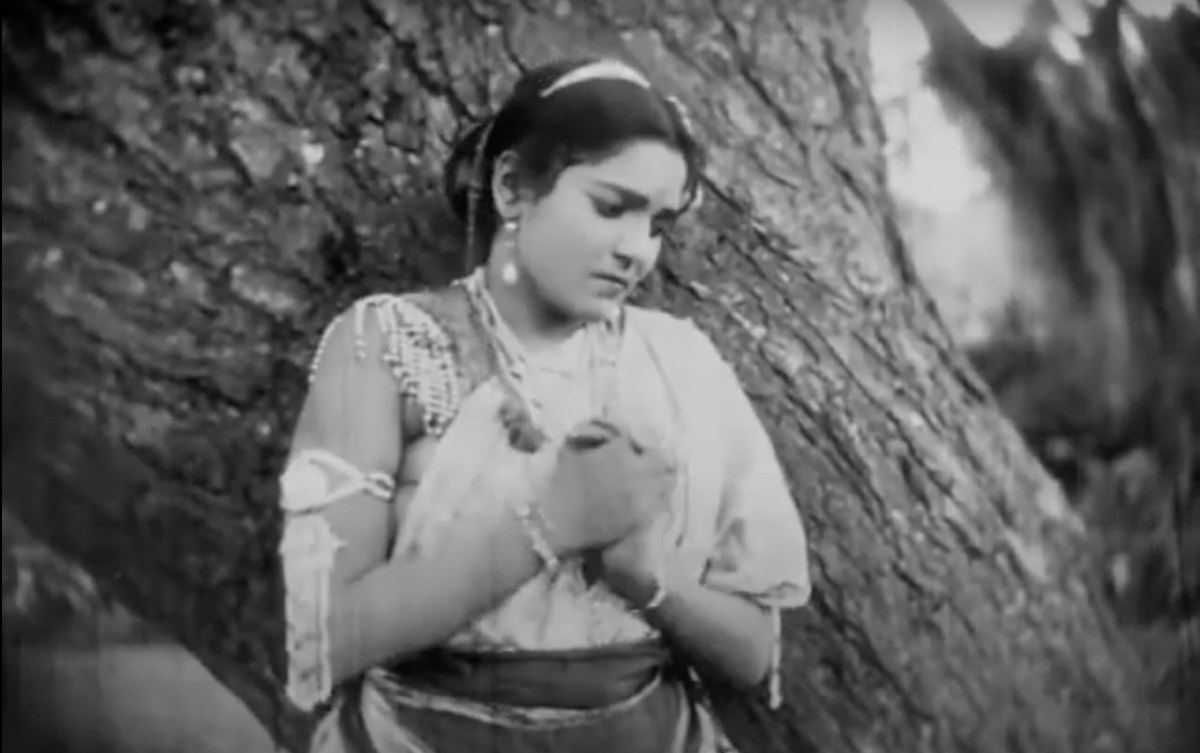
The second night of the program will have a prehistoric flavour, screening one of Hollywood’s earliest silent monster movies, The Lost World (1925) directed by Harry O. Hoyt, and based on Sir Arthur Conan Doyle’s novel about a daring expedition to prove the existence of a hidden plateau teeming with dinosaurs and other prehistoric creatures. The special effects in this film may look dodgy to modern eyes, but that’s part of the fun.
In a thrillingly unexpected pairing, this early Hollywood dinosaur film will be accompanied by a score composed and performed by Australian Indigenous Butchulla Songman Fred Leone. Leone will mix traditional and contemporary sounds, fusing voice, Kuluru (Garrwa language for Yidaki aka Didgeridoo), boomerangs (Bargan in Butchulla language), Emu egg (Ngurunj in Butchulla language), tree branches, sand and other objects.
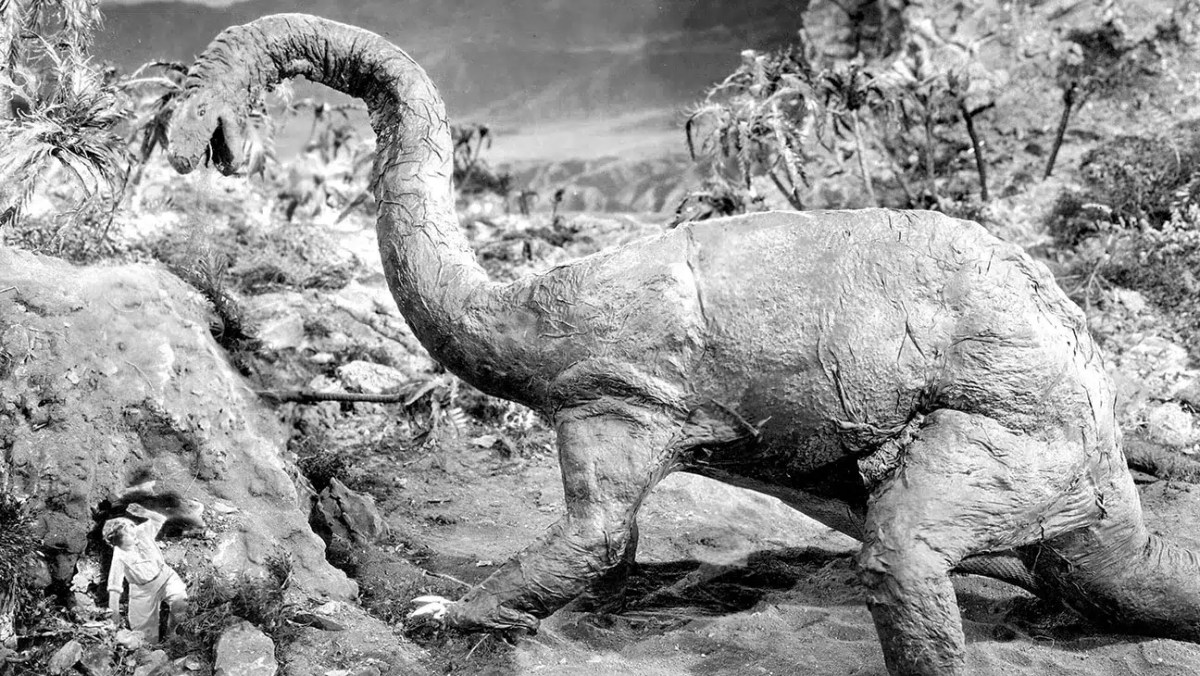
The final night of the Silent Cinema program will combine the classic physical comedy of Buster Keaton with a live score composed and performed by Blue Grassy Knoll, the beloved five-piece gypsy-bluegrass ensemble who’ve built a 20-year career playing music that playfully bounces off silent films and brings them to exuberant life.
ScreenHub: Silent films, live scores – the musicians taking scores to Melbourne for free
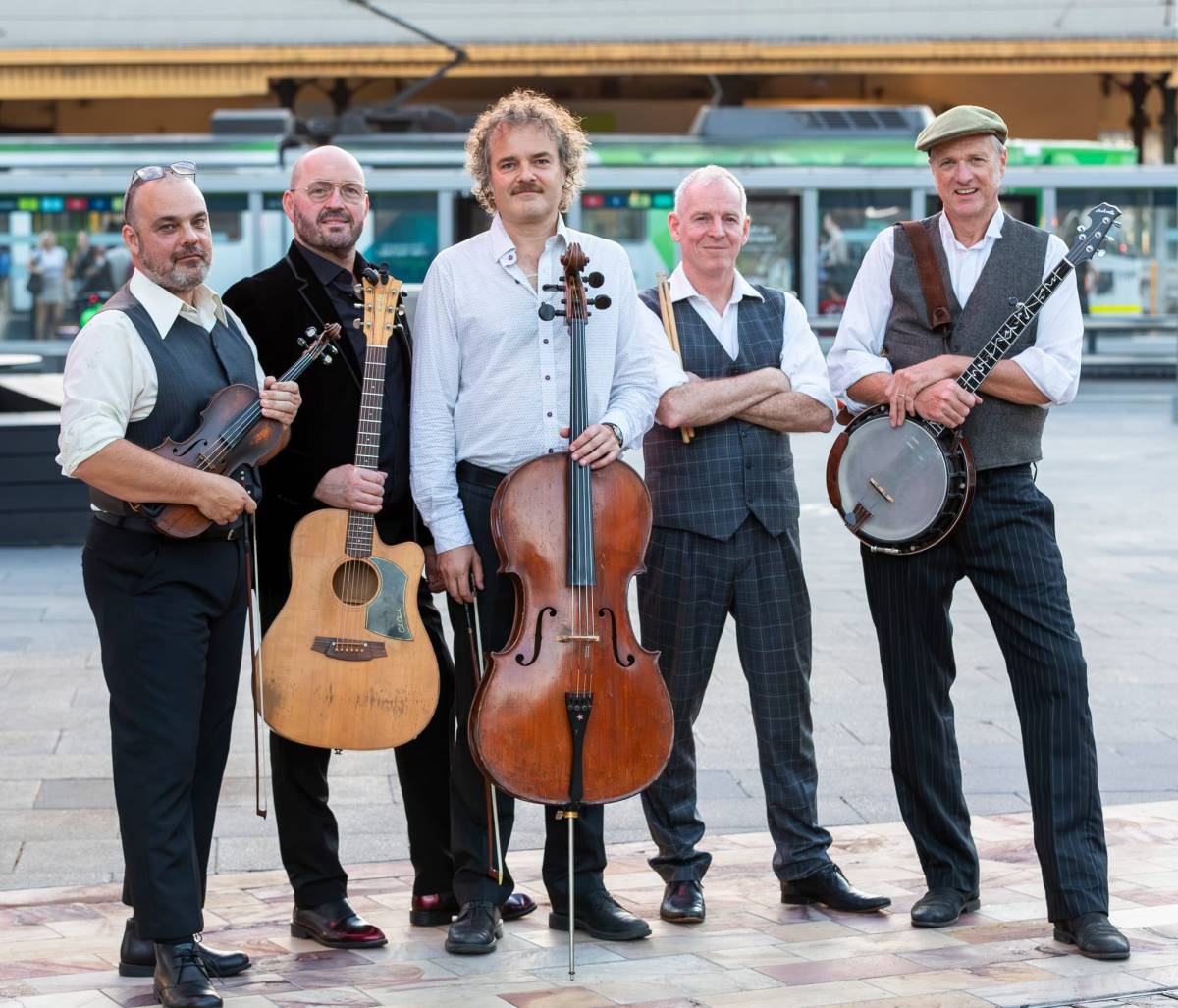
While last year, Blue Grassy Knoll performed an uproarious score to Keaton’s Our Hospitality (1923), this year, they’ll return with vigorous scores for two films: Keaton’s 19-minute One Week (1920), the first independent film Keaton released on his own, and notable for its innovative visual gags involving ladders and houses in the story of a young couple trying to assemble a kit home; and Sherlock Jr (1924), where Keaton plays a poor lovelorn film projectionist who moonlights as an amateur detective.
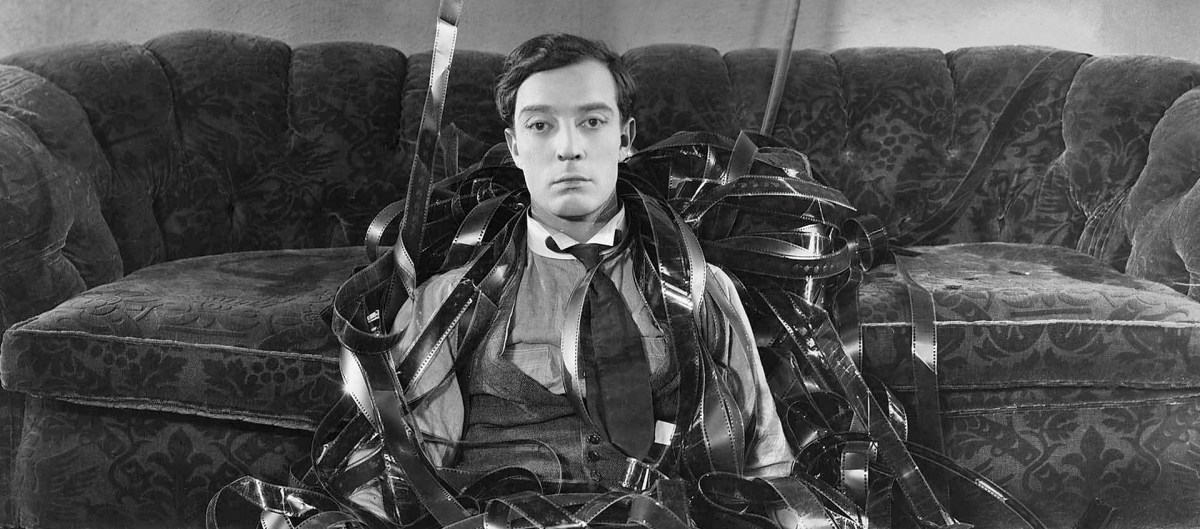
Silent Cinema Live Scores: an evolving event
Ben McCarthy, film curator for Melbourne Arts Precinct Corporation, says that Fed Square’s popular free event gets better every year. ‘It’s a wonderful selection of films and composers for this year’s series – I believe it’s going to be the best one yet.’
McCarthy says the Silent Cinema program is evolving with each iteration. ‘We learn from how each film and score is composed, received by the audience and [we] try to refine our approach by addressing anything we haven’t done yet in the program.’
McCarthy says he works closely with Jason Cross and Stella Webster from Insite Arts to discuss what filmmakers, genres, and themes the season should talk to, while trying to give the audience ‘something new and fresh to discover’.
‘Once we decide the themes,’ McCarthy explains, ‘the film selections are led by the composers to ensure they have a creative and emotional connection to the films. It’s a collaborative process with everyone involved.’
Hari Sivanesan: celebrating South Asian culture and pushing the limits
Born in the UK and now based in Melbourne, Hari Sivanesan is an internationally acclaimed composer, veena virtuoso and multi-instrumentalist who combines classical and Indian music training with contemporary experimentalism. He claims a voracious interest in cinema ‘from Hollywood to Bollywood and Tollywood’.
Sivanesan tells ScreenHub that the four Indian films screening as part of Ramayana and other Tales ‘are the kinds of stories our grandmothers used to tell us’ and that they work like short chapters in a book.
‘Everyone in the South Asian community is familiar with these tales that have a kind of moral to them, a bit like Aesop’s fables,’ he says. ‘What’s interesting for me as a composer is to give these silent films and classic stories a life that meets the appetite of a contemporary audience and evokes an emotional response.’
Sivanesan got his big break when, at age 13, he was chosen by sitar maestro Ravi Shankar to play on the groundbreaking record Chants of India, produced by the late George Harrison.
Sivanesan says he still counts ‘Ravi ji’ as a key influence and inspiration, particularly in the way Shankar extended the beautiful but ‘limited texture’ and strict boundaries of traditional Indian music, which Sivanesan explains has ‘no polyphony, no harmonising and no orchestra – or if there was an orchestra, it would be all the instruments playing the same melody.’
In contrast, Sivanesan says audiences at the Silent Cinema event can expect much more playfulness and variety, ‘a blend of traditional and contemporary music, with South Asian and Western musicians, and instruments including bamboo flute, veena, percussion, human voice – even a children’s choir when we come to a point in the storytelling that needs those child voices, or the voice of innocence’. He says around 75% of the music will be pre-composed with 25% left for improvisation with the musicians, and orally taught in sessions before the screening.
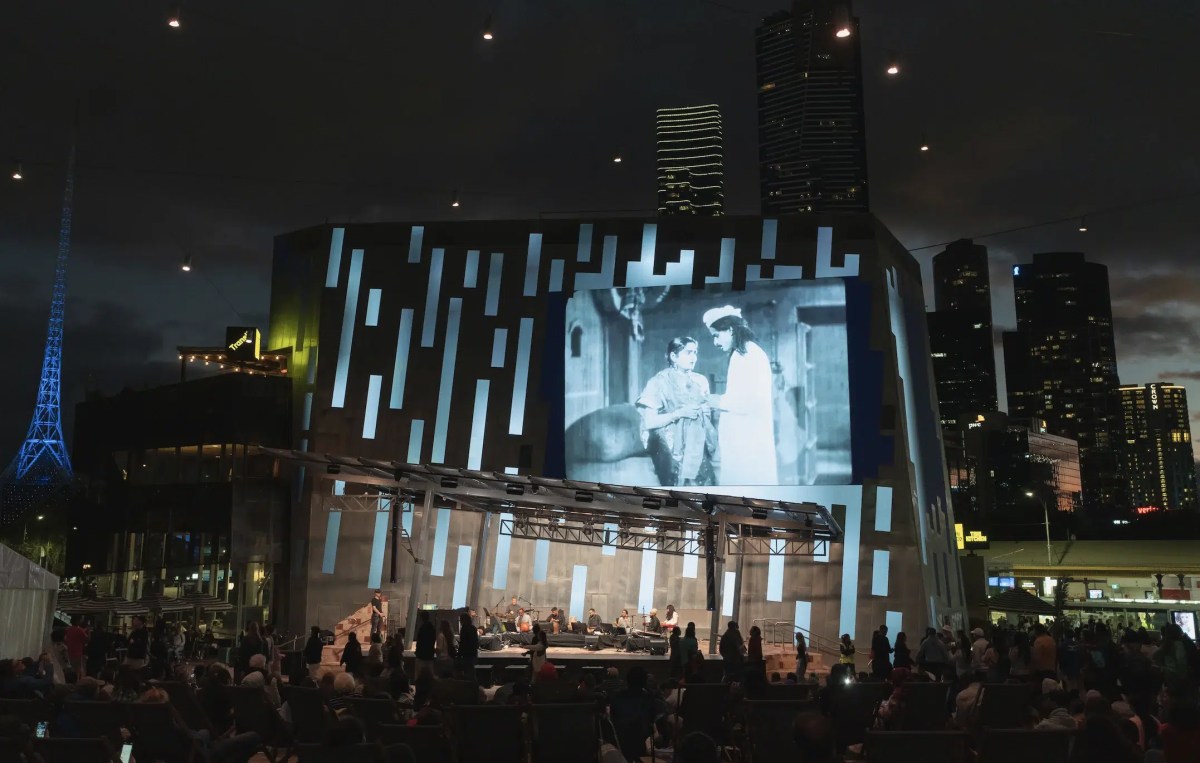
Sivanesan’s first experience composing directly for silent film was in 2023 with the live score for Baburao Painter’s 1927 classic Muraliwala which also screened at Fed Square. It was a creative and collaborative experience he was keen to repeat. ‘It’s wonderful to have something special for the South Asian community, but hopefully an event that can be enjoyed by everyone, including the passing crowd. I love to create those emotional experiences and foot-tapping moments for everyone who happens to be there.’
Silent Cinema with Live Scores will run from 25 to 27 February 2025. Presented by Fed Square in partnership with Insite Arts.
- Ramayana and other tales, with live score by Hari Sivanesan will be performed at Fed Square on Tuesday 25 February at 8pm.
- The Lost World (1925) with live score by Fred Leone will be performed at Fed Square on Wednesday 26 February at 8pm.
- One Week (1920) and Sherlock Jr. (1924), with live score by Blue Grassy Knoll will be performed at Fed Square on Thursday 27 February at 8pm.
